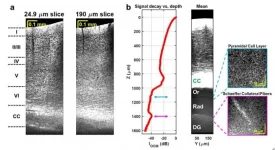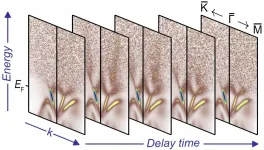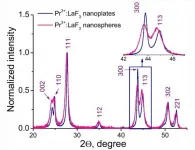Strong evidence that patients with pre-existent mental disorders are twice as likely to die or be hospitalised after SARS-CoV-2 infection Psychotic and mood disorders are linked with COVID-19-associated mortality, as are exposure to antipsychotic and anxiolytic treatments. Patients with substance use disorders are at increased risk of hospitalisation.
In the largest systematic review and meta-analysis to date on COVID-19 outcomes in individuals with psychiatric disorders, the odds of dying or being hospitalized following COVID-19 infection were determined to be twice as high in comparison to persons without mental disorders.* The study also found ICU admission rates were not affected. This work, initiated by the Immuno-NeuroPsychiatry Network of the European College of Neuropsychopharmacology, is published today in the peer-reviewed journal Lancet Psychiatry**.
The study compiles data from 33 studies from 22 countries, comprising 1 469 731 patients with COVID-19, of whom 43 938 had mental disorders. Twenty-three studies were included in a random-effects meta-analysis of crude and adjusted odds ratios for COVID-19 related mortality, hospitalization, and ICU admission in individuals with comorbid pre-existent mental disorders, investigating different diagnostic groups and classes of psychiatric drugs. Individuals with psychotic disorders and mood disorders, as well as patients receiving treatment with antipsychotics or anxiolytics (anxiety reducing drugs) appear as the most vulnerable groups for COVID-19-associated mortality. Patients with substance use disorders were also at increased risk for hospitalization following COVID-19.
The authors of the paper call for national and international health authorities to take concerted action by offering priority vaccination to patients with severe mental illness, intellectual disability, and substance use disorders, and highlight the urgency of actions to counteract possible reduced access to care.
Corresponding author, Dr Livia De Picker (from the University Psychiatric Hospital Campus Duffel, Belgium) said:
"Together with many colleagues from national and international psychiatric associations, we have been advocating for priority SARS-CoV-2 vaccination of patients with severe mental illness. However, it quickly became apparent that a lack of high-quality evidence on the mortality and hospitalization risks of patients with mental disorders was blocking implementation of our recommendations by healthcare policymakers. In several countries, pleas to change the vaccination strategy were discarded by national health authorities with the argument that the current scientific evidence did not distinguish particular groups of psychiatric patients who have a very high risk for severe Covid-19, hospitalizations, ICU admittance and death due to Covid-19. This paper offers precisely this, and shows that pre-existing mental disorders, in particular psychotic and mood disorders, and exposure to antipsychotics and anxiety-reducing drugs are associated with COVID-19 mortality. With this new evidence, not taking action is no longer an option."
"Importantly, our data revealed a striking contrast in patients with severe mental illness. Patients with psychotic disorders in particular were affected by the highest mortality risk, but did not have increased risk of hospital admission. We know these patients face important barriers to physical healthcare, and our results suggest reduced access to care could have contributed to the increased mortality seen in this group. Public health authorities need to take targeted action to ensure maximum vaccination uptake for all groups of at-risk patients identified in this study. Close monitoring and adequate hospital referral in patients with psychiatric disorders who develop COVID-19 is needed to counteract possible reduced access to care."
The study was initiated by the ImmunoNeuroPsychiatry Network of the European College of Neuropsychopharmacology. Author and director of the Network, Professor Marion Leboyer (University of Paris Est Créteil, France) said,
"This high-quality study was created through the concerted efforts of many international colleagues working together. Further work is needed to determine the causes of the poor COVID-19 outcomes in psychiatric patients, which might reflect biological processes, such as immune-inflammatory alterations related to the psychiatric disorders. In particular the impact of psychopharmacological treatments requires further study. We found that exposure to antipsychotic and anxiolytic drug treatments initiated before contracting COVID-19 was associated with severe COVID-19 outcomes. Antipsychotics might increase cardiovascular and thromboembolic risks, interfere with an adequate immune response, and cause interactions with drugs used to treat COVID-19. Benzodiazepines are associated with respiratory risk, and are known to be associated with all-cause mortality. By contrast, some antidepressants were recently shown to have protective effects. In addition, social and lifestyle factors such as diet, physical inactivity, social isolation, high alcohol and tobacco use, and sleep disturbances, and a higher prevalence of somatic comorbidities might also have detrimental effects on COVID-19 prognosis."
INFORMATION:
* Odds ratios mortality: OR 2·00 [95% CI 1·58-2·54] ; hospitalization: OR 2·24 [1·70-2·94].
**The full paper is published online by Lancet Psychiatry on 15th July 2021. Full text is available at http://www.thelancet.com/journals/lanpsy/article/PIIS2215-0366(21)00232-7/fulltext "Mental disorders and risk of COVID-19-related mortality, hospitalisation, and intensive care unit admission: a systematic review and meta-analysis".A pdf copy of this paper is available to accredited journalists: contact the press officer (see "Notes for Editors").
Author details:
Benedetta Vai a,b* , Mario Gennaro Mazza a,c* , Claudia Delli Colli d , Marianne Foiselle e , Bennett Allen f , Francesco Benedetti a,c , Alessandra Borsini g , Marisa Casanova Dias h,i , Ryad Tamouza e , Marion Leboyer e , Michael E. Benros j,k , Igor Branchi d , Paolo FusarPoli l,m , Livia J. De Picker o,n, † *Contributed equally
a. Psychiatry & Clinical Psychology, Division of Neuroscience, IRCCS San Raffaele Scientific Institute, Milano, Italy.
b. Fondazione Centro San Raffaele, Milano, Italy
c. University Vita-Salute San Raffaele, Milano, Italy
d. Center for Behavioral Sciences and Mental Health, Istituto Superiore di Sanità, Rome, Italy.
e. University Paris Est Créteil, INSERM, IMRB, Translational Neuropsychiatry, AP-HP, DMU IMPACT, FHU
ADAPT, Fondation FondaMental, F-94010, Créteil, France.
f. Center for Opioid Epidemiology and Policy, Department of Population Health, New York University Grossman School of Medicine, New York, New York, United States.
g. Stress, Psychiatry and Immunology Laboratory, Department of Psychological Medicine, Institute of Psychiatry, Psychology & Neuroscience, King's College London, UK.
h. Department of Psychological Medicine and Clinical Neurosciences, School of Medicine, Cardiff University,
Cardiff, UK
i. Section of Women's Mental Health, Institute of Psychiatry, Psychology, and Neurosciences, King's College
London, London, UK.
j. Copenhagen Research Centre for Mental Health, Copenhagen University Hospital, Denmark.
k. Department of Immunology & Microbiology, Faculty of Health and Medical Sciences, University of Copenhagen, Denmark
l. Department of Psychosis Studies, Institute of Psychiatry, Psychology, and Neuroscience, King's College
London, United Kingdom.
m. Department of Brain and Behavioral Sciences, University of Pavia, Pavia, Italy
n. University Psychiatric Hospital Campus Duffel, Duffel, Belgium.
o. Collaborative Antwerp Psychiatric Research Institute, University of Antwerp, Antwerp, Belgium.
Information on the ECNP Immuno-Neuro Psychiatry Network can be found at: https://www.ecnp.eu/research-innovation/ECNP-networks/List-ECNP-Networks/Immuno-NeuroPsychiatry The next ECNP Congress takes place in Lisbon, 2-5 October https://www.ecnp.eu/Congress2021/ECNPcongress







